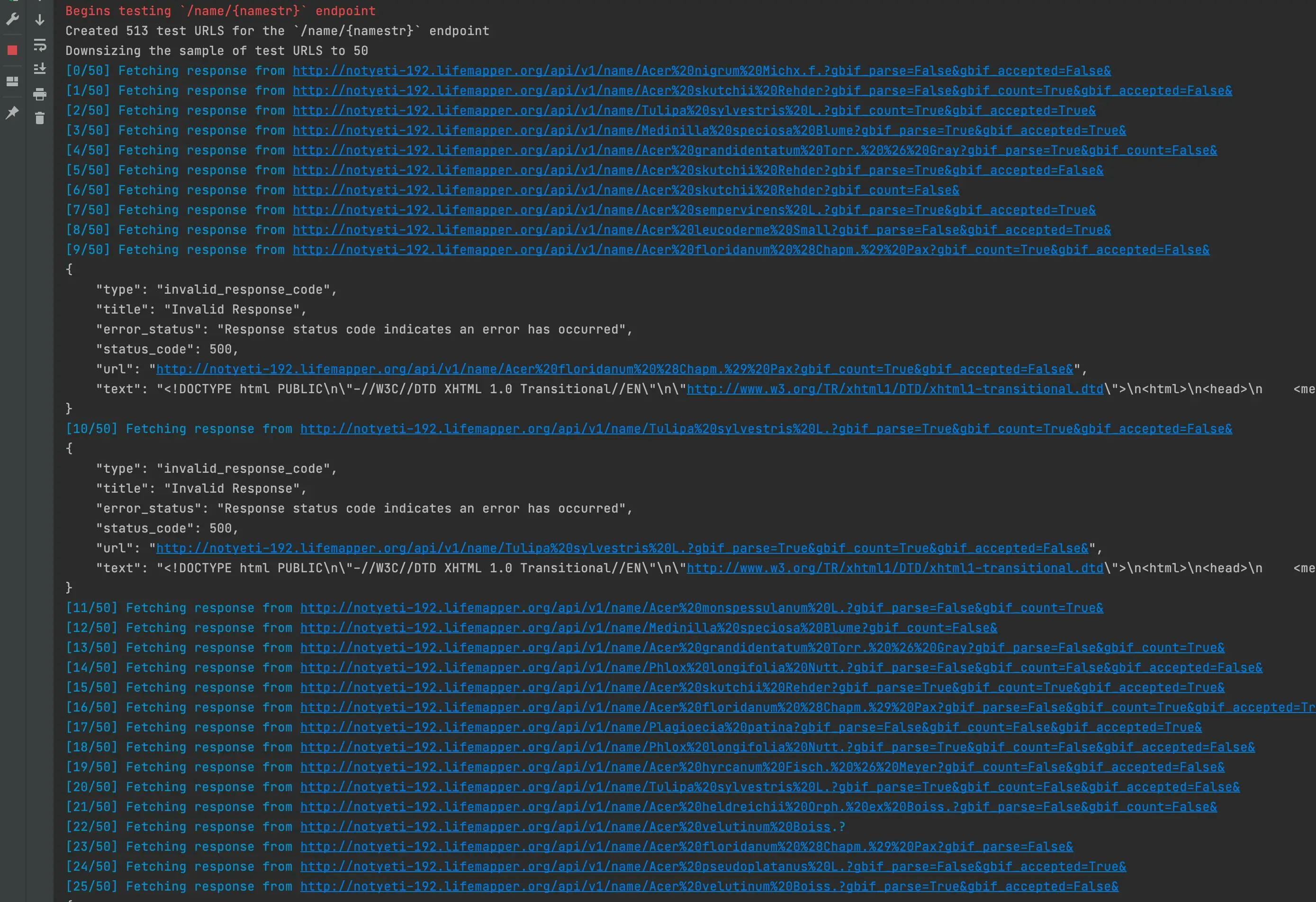OpenAPI-based automated tests
Autogenerated tests of API services based on OpenAPI Schema
Public APIs must be stable and reliable, yet manual testing is often not practical due to time constraints. Thankfully, the OpenAPI schema allows to define endpoints, and describe their input parameters as well as the response schema in a machine-readable way.
This schema can then be used to validate incoming requests on the fly, as well as to provide continuous testing.
The OpenAPI testing framework I developed can run automated tests on all endpoints by randomly creating a valid query string and comparing the response object against the schema.

While automated tests are an awesome low-effort solution, sometimes you need to provide specific test values and define expected constraints (how a given parameter should affect the output). This use case is also handled by the library.
Additionally, some tests may require running a particular sequence of operations (for example, Create, View, Edit, View, Delete). This can be solved through Chain tests, where the testing framework would run the output of one request through a generator to produce the input for the next request and so on.
Recorded presentation from TDWG 2021
A non-technical overview of APIs
By default, the testing framework runs tests on all endpoints, prints any issues, and exits once done. For the purposes of continuous integration, it may be desirable to continuously run periodic tests, results of which are logged and failures are reported. My coworker developed a testing daemon and a scheduler just for that - LmTest.
Technologies used
- Python
- OpenAPI v3.0
- JSON Schema
- Flask
Things learned
Close to the end of this project, I found out that GraphQL exists, and that it already does most of the things I was trying to reinvent, but it does a much better job of it. Unfortunately, we can't move completely to GraphQL as it would require a big migration. Still, this was one more reminder to do research of existing solutions before trying to creat a yet another library